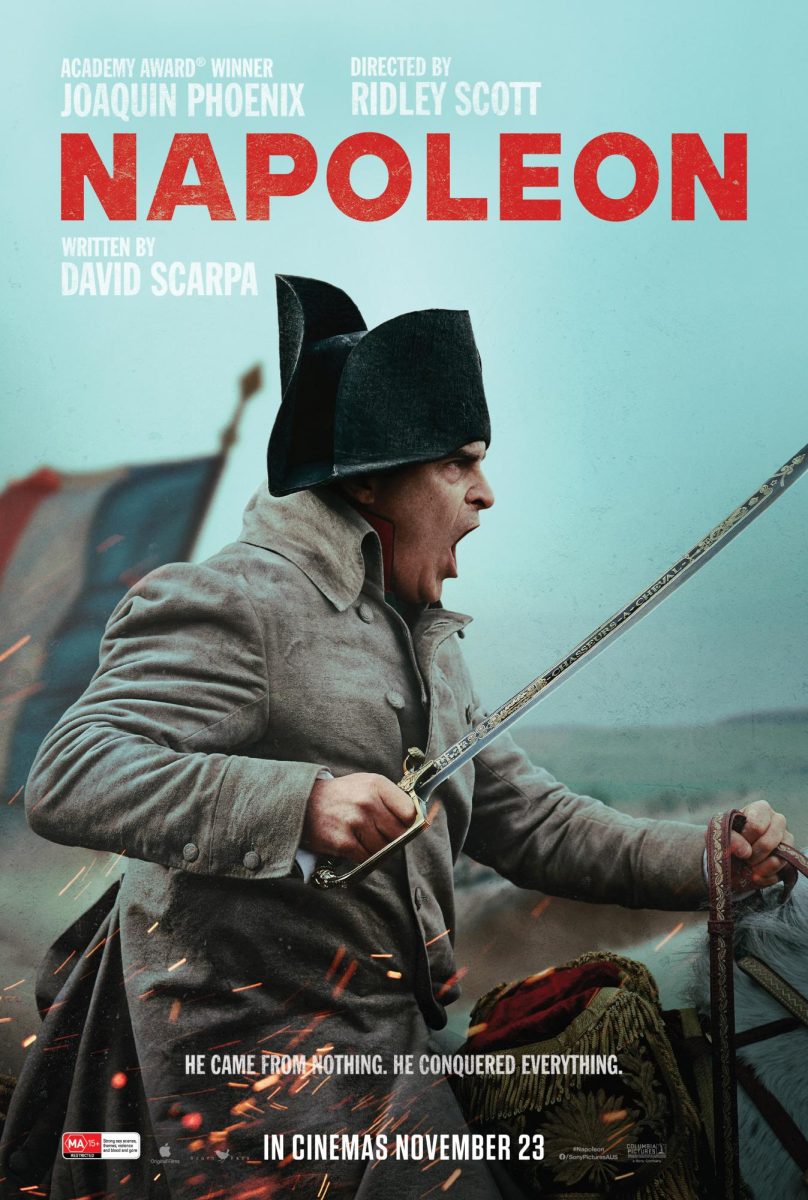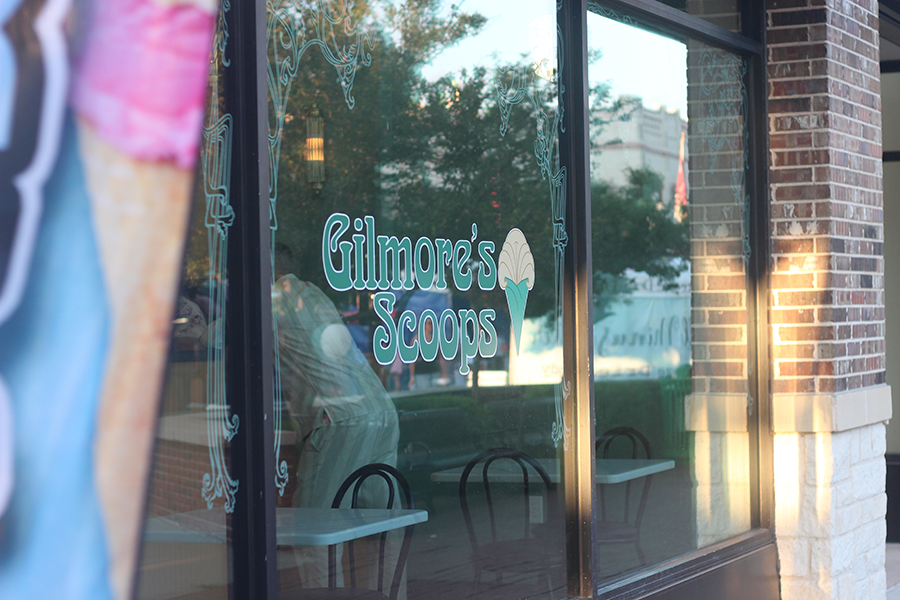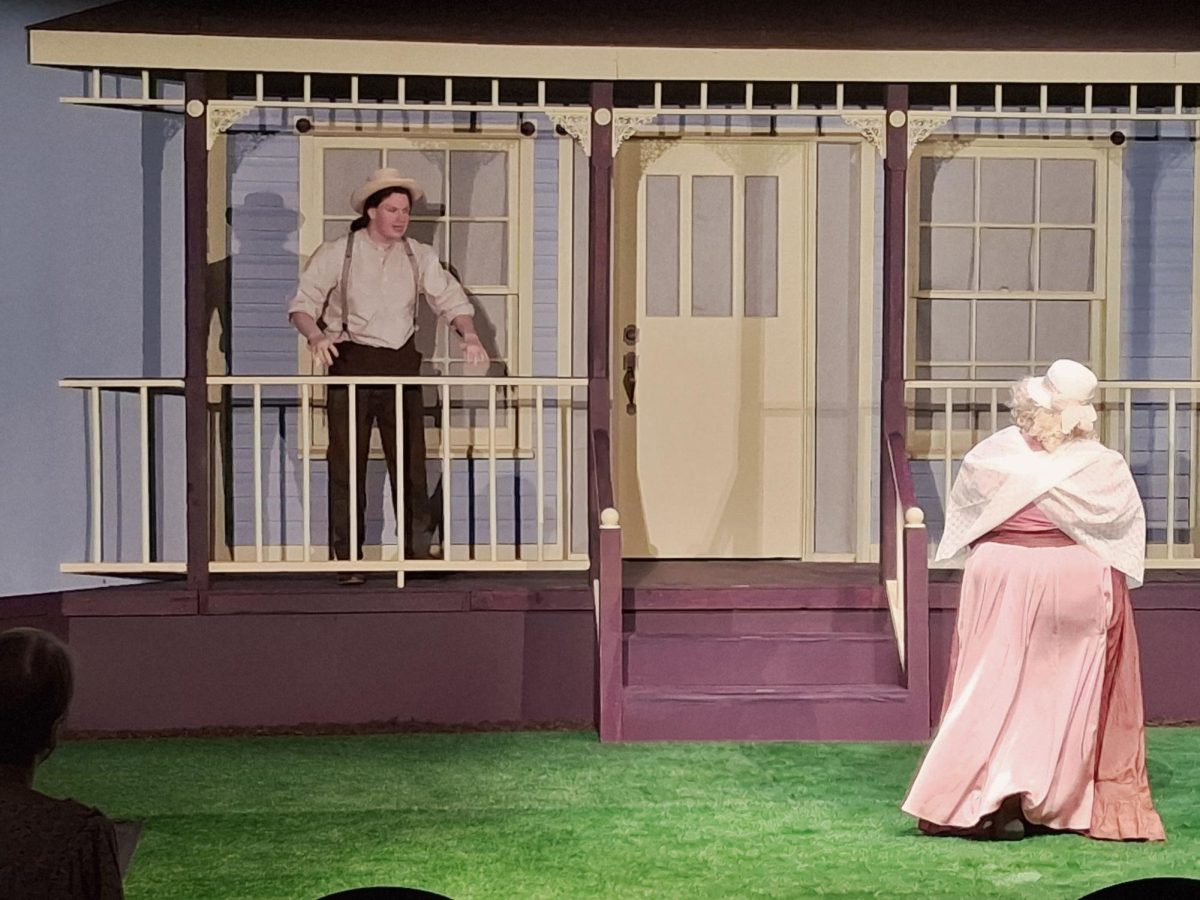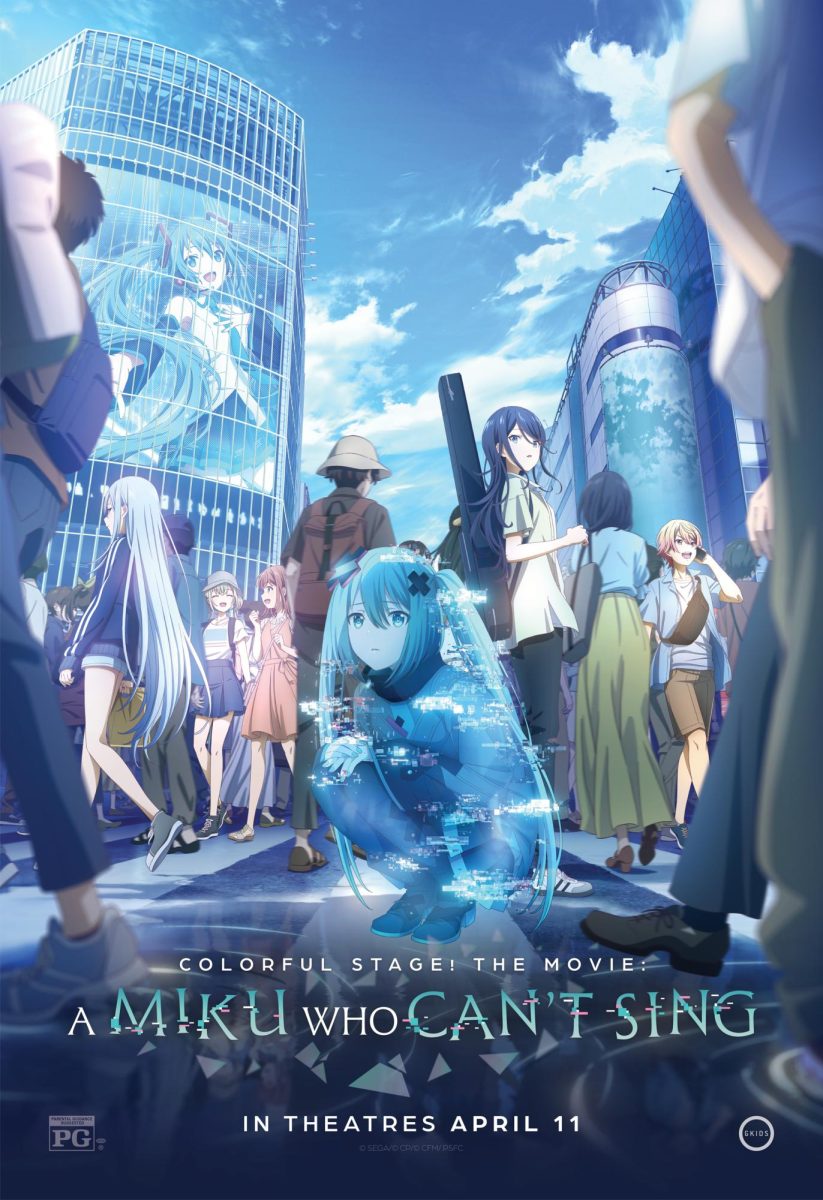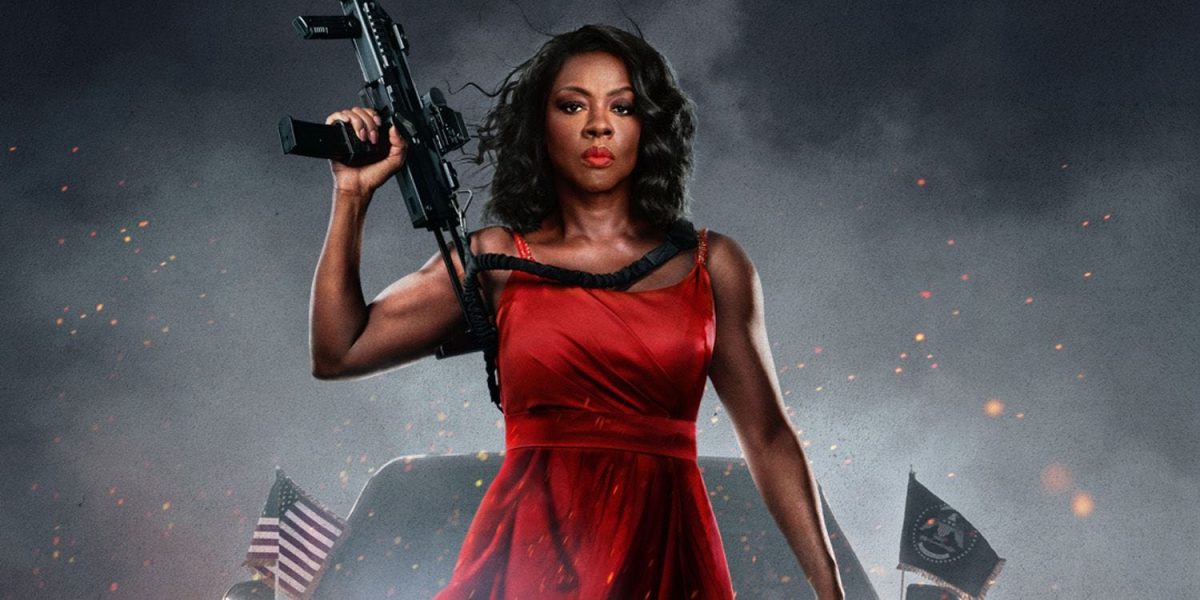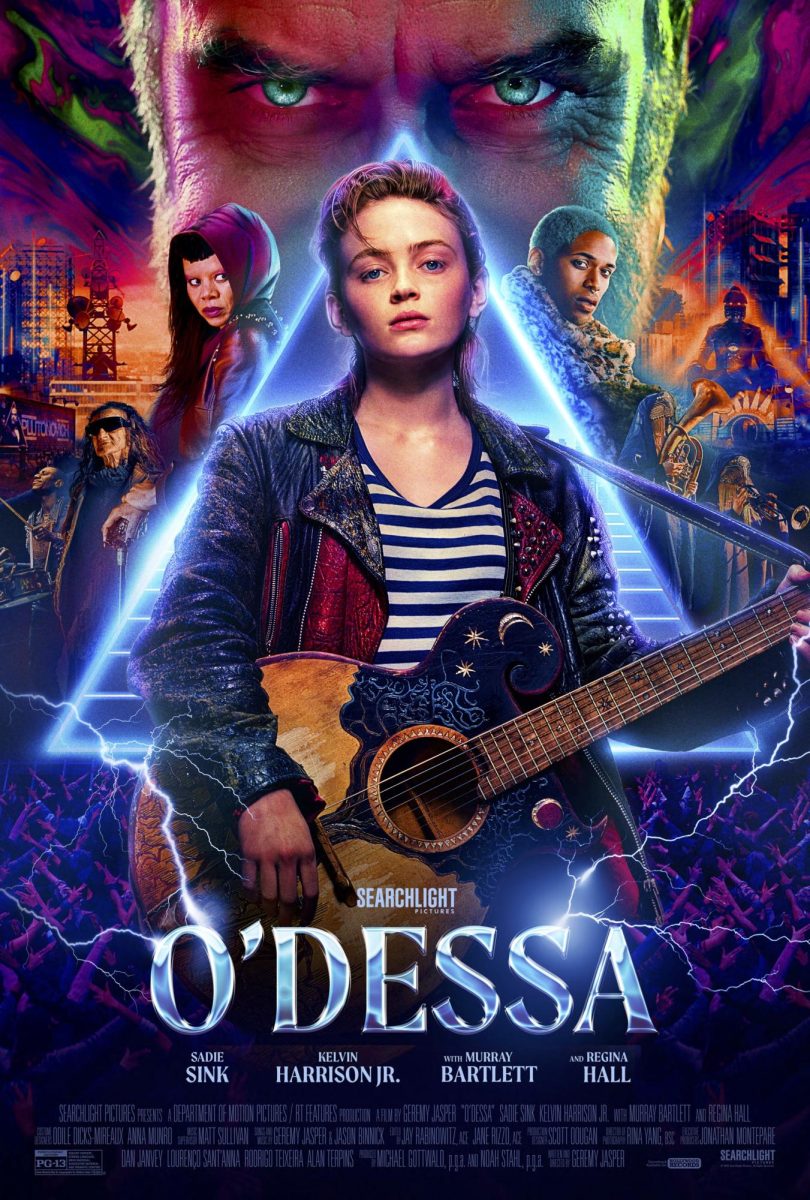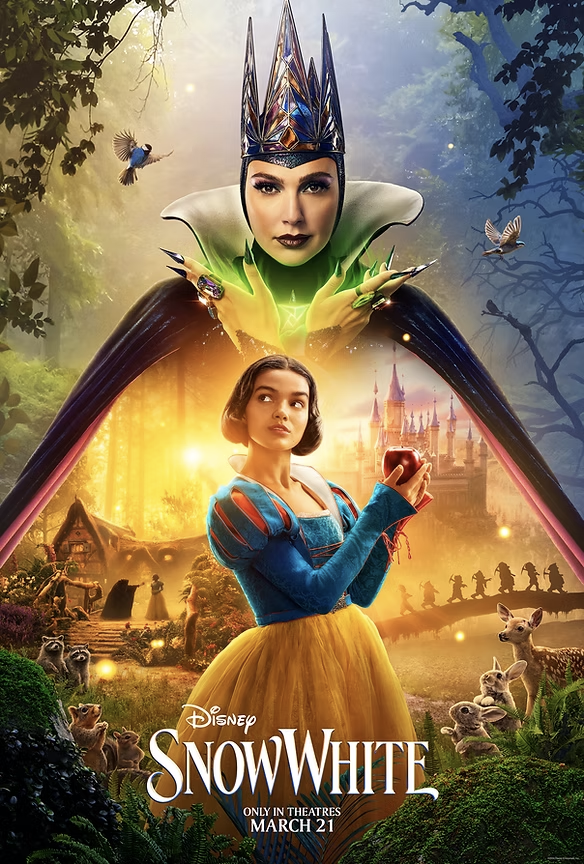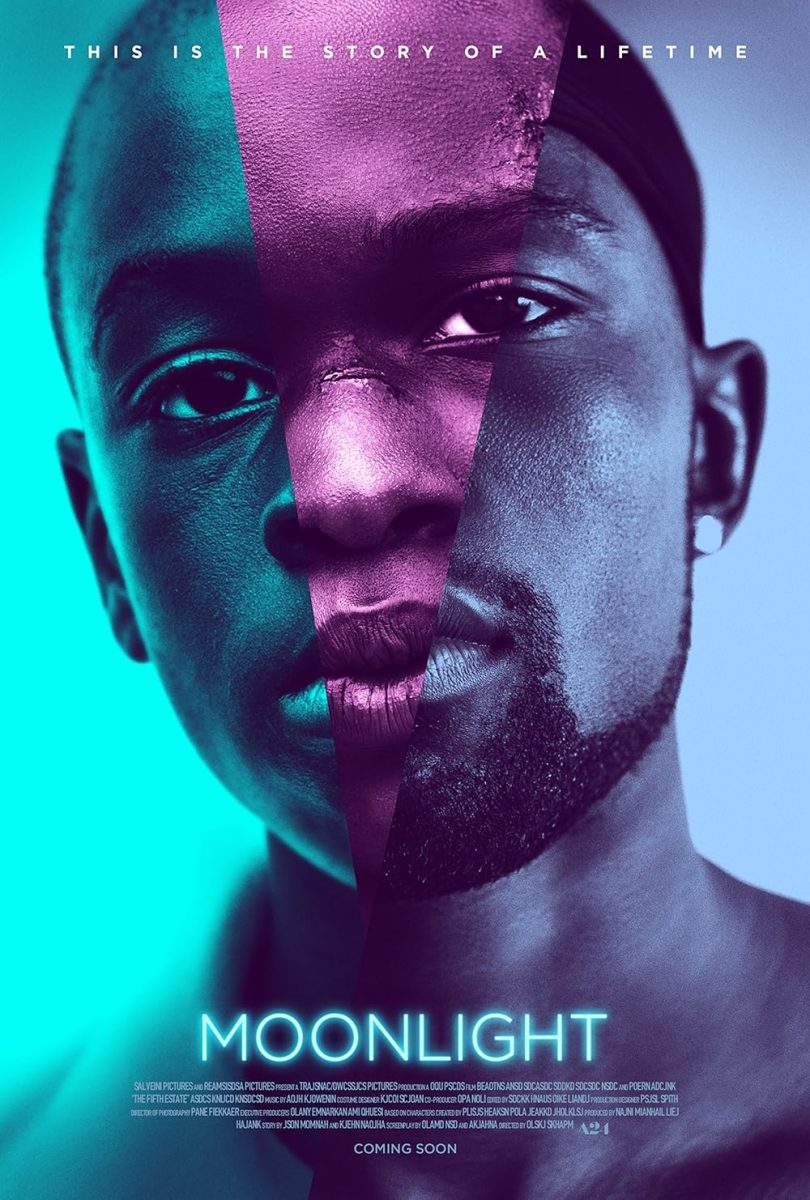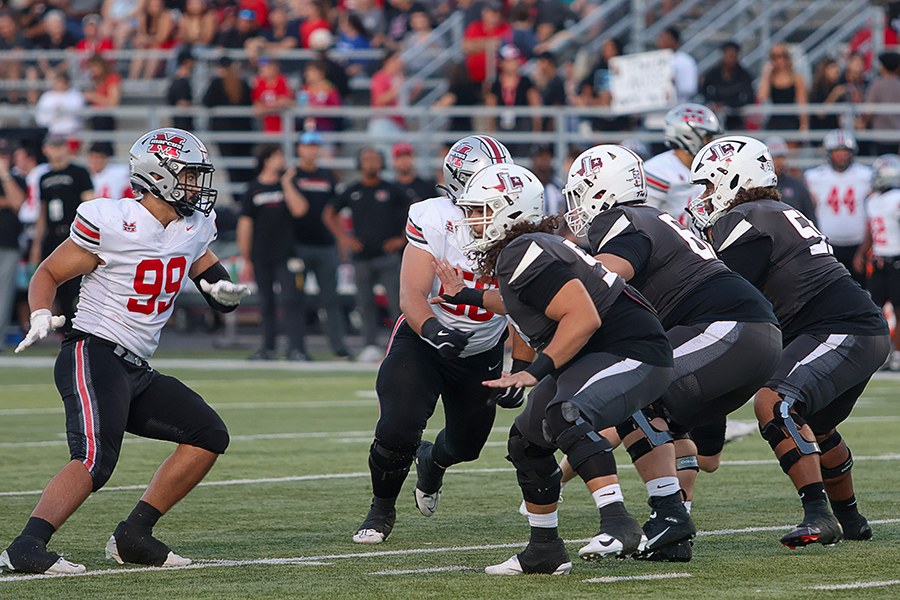“Napoleon” is the lengthy masterpiece of veteran director Ridley Scott who has directed multiple historical movies with large battles. Viewers will ponder the film for the rest of the day and carry the immersive experience with them afterward.
Joaquin Phoenix plays a cold and calculating Napoleon Bonaparte as the movie progresses. Phoenix masterfully shows pain slowly seeping out from his stone cold demeanor by displaying his character with precision. Phoenix shows his art in acting through his emotional output following with the betrayal Napoleon faces throughout the movie.
Josephine Bonaparte is the surprising backbone of the film with her role in taking over the mind of Napoleon impacting the country of France, its army and Emperor Bonaparte’s mentality. Played by Vanessa Kirby, Josephine displays love, guilt and anxiety. She acts artfully, thoughtfully and convincingly and tells a story about Josephine from the perspective of Napoleon.
The glory of France is displayed in the cinematic masterpiece. Images of the French flag can be found hidden throughout the movie’s scenery and in the background with the Blue French infantry on the left, the plain white sky in between and the Red English infantry on the right of the Forming France’s flag. This movie makes perfect use of hundreds of extras and even horses synchronized with each other, with little CGI throughout the movie. The audience can see through the intelligent movement and unique individual fights of the large cast of extras.
“Napoleon” complements and contrasts with the classic “Waterloo.” The influence of “Waterloo” on “Napoleon” is obvious with the final climax battle being the The Battle of Waterloo in both. Both movies are expertly depicted through the use of extras often for just a single shot. While “Napoleon” differs from “Waterloo” with its focus on Napoleon and his relationships and emotions, both movies are critically acclaimed for large-scale choreographed intense battles. “Waterloo” has been praised as one the most historically accurate war movies created with the events and tactics being taken straight from history books.
Director Ridley Scott created fictional details to dramatize “Napoleon” with scenes being criticized for their lack of historical accuracy. Scott includes fictional details within the movie to dramatize the events and battles. Including fictional details makes the audience feel confused and takes away from the immersion. “Napoleon” makes casting inaccuracies with the same actors playing ageless characters throughout the 28 years shown within the movie. They also chose to cast the young Vanessa Kirby to play a character historically older than Napoleon played by the older Joaqin Phoenix.
“Napoleon” is a famous piece of art by a masterclass artist because of the beautiful cinematography as well-interruptible emotions. Due to beautiful cinematography, acting and storytelling, the emotions of the story are pushed onto the audience making this movie a heartfelt experience, worthy of a 9/10 rating. The audience is left thinking of life, considering how it would feel to lose it all and go from ruling continental Europe to get exiled to a small rock under tight security.

